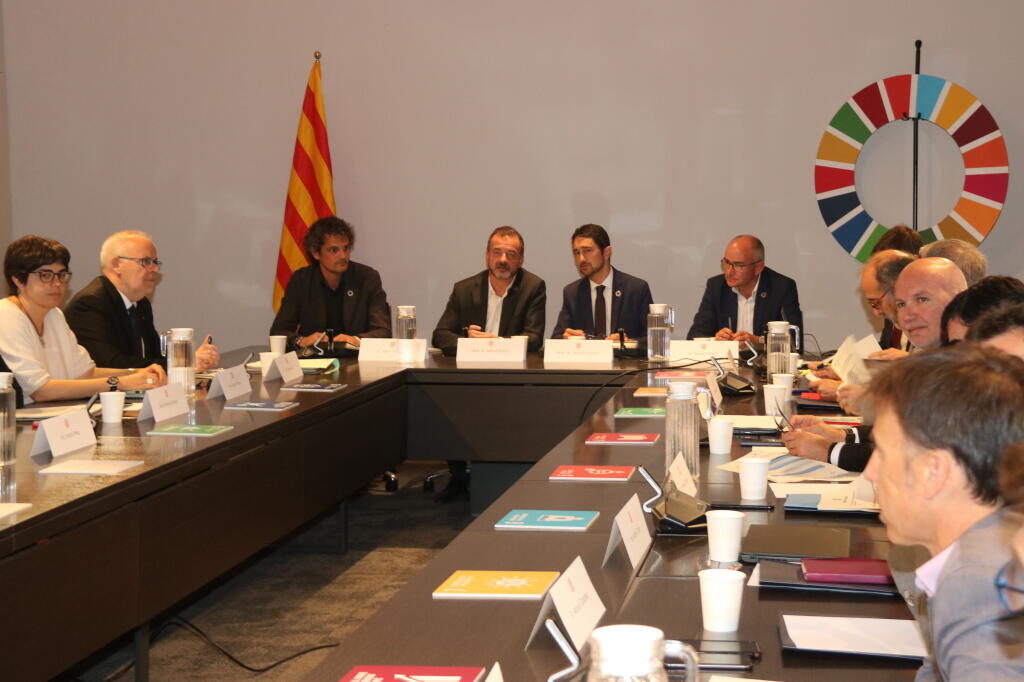11.07.2019 - 11:32
|
Actualització: 11.07.2019 - 13:32
All departments within the Catalan government have proposed a list of more than 900 sustainability transition commitments to implement across the country, with a view of meeting the objectives set out in the UN’s 2030 Agenda to tackle the climate emergency and extreme poverty. The departments met on Tuesday to validate the plans that set various objectives for sustainable development, consumption, and production. This is the first step before the definitive approval of the measures that are expected to be passed by the government’s executive council after the summer.
Foreign minister Alfred Bosch has assured that the government takes the goals set by the United Nations “seriously.” The 2030 Agenda plan establishes 17 Sustainable Development Goals and 169 economic, social, and environmental goals. “As always, we are together with the United Nations, we believe in international organizations, we believe it is positive to set goals for the year 2030 and beyond in terms of improving the general problems of humanity,” Bosch explained to the media before the meeting.
Among the 920 commitments that will be made, 111 are international that will work to “contribute to the improvement of the conditions and the rights of the world’s environments,” he said. The foreign ministry and the statistical institute of Catalonia are working to incorporate a system of indicators of the Sustainable Development Goals in official statistics, which will allow monitoring and evaluation, taking the indicators published by Eurostat as a reference.
13 months of work
The Catalan territory minister, Damià Calvet, explained that the 2030 Agenda will be used to plan sustainable urban environments, to promote the circular economy and to accelerate measures to strengthen the sustainable energy transition, beginning with the decarbonization of mobility, and moving towards railways for the transport of goods, rather than road networks.
Calvet also claimed that the government has already begun a strategy to prevent Catalonia from losing more of its biodiversity. According to the minister of territory and sustainability, this is Catalonia’s worst-performing indicator, which the minister contrasts with water management and waste, where Catalonia has performed much better.
Work on the 2030 Agenda plan began in 2017, but the application of direct rule from Madrid interrupted its process. The plan that has been validated is the result of 13 months of work in which all the departments of the ruling body have actively participated. Now the document will be raised to the government, which is expected to approve it officially in September.


